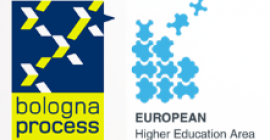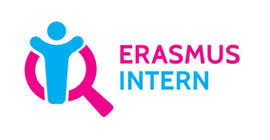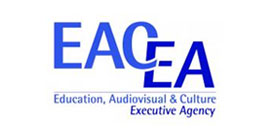Updated Concept and requirements for papers - 2025
The concept of the journal and requirements for articles[1]
PERSPECTIVES OF HIGHER EDUCATION DEVELOPMENT
Peer-reviewed scientific and methodological journal of Higher Education Reform Experts
of the Republic of Uzbekistan,
Founded in 2020. It has been published as a scientific and methodological collection since 2011.
https://erasmus.uz/en/page/89-88-heres
The journal is published with the organisational support of the National Erasmus+ Office in Uzbekistan and the Ministry of Higher Education, Science and Innovation of the republic of Uzbekistan.
The publication is financed by the Erasmus+ programme of the European Union.
The conclusions and views expressed herein are those of the authors and do not necessarily reflect an official view of the European Commission.
It is included to the list of publications recommended by the Supreme Attestation Commission of Uzbekistan.
Indexed in Google scholar and CYBERLENINKA, included in the EBSCO database.
Chief editor – Professor Marat Rakhmatullaev
Goal of the journal: improving the effectiveness of the educational process by analyzing and informing about progressive methods, achievements, trends, and problems in the field of higher education (HE).
Journal fields
• Modern challenges for the higher education system;
• Innovative methods and tools in higher education (experience of foreign countries, universities of Uzbekistan, progressive methods of teaching and learning, organization of the educational process and management of universities, the use of ICT for innovative development of higher education, educational platforms);
• Erasmus + program (objectives of the program, experience of successful Erasmus + projects in Uzbekistan and abroad, reports of HEREs team members on the results of participation in international seminars, implementation of the principles of the Bologna process in Uzbekistan, etc.);
• Credit-modular system in the HE (concepts, requirements for the transition to a credit-modular system, financial management in the conditions of CS, training programs, mobility of teachers and students, analysis of foreign experience, pros and cons of CS, etc.);
• Autonomy of universities (economic, organizational, technical aspects, experience of leading countries, Uzbekistan, etc.);
• Professional development, and retraining of personnel in higher education (advanced training programs, experience, methods, and tools)
• Scientific and educational information for universities (access to information sources for HE, scientometrics, statistics, resource use and publication activity);
• Problems and prospects of investments in higher education (criteria for investments in HE, experience of foreign countries, universities of Uzbekistan, financial management, investment efficiency, optimization of the use of material and human resources in universities, etc.);
REQUIREMENTS FOR ARTICLES
The journal's article requirements have been aligned with international standards for formatting scientific publications.
Peer review is conducted by highly qualified scholars and specialists, including foreign reviewers.
The journal's editorial board welcomes articles that meet international standards in both content and format.
1. REQUIREMENTS FOR THE CONTENT OF ARTICLES:
According to the content of the article, they should disclose one or more topics of the sections of the issue and correspond to the main topic, be unpublished, analytical, contain elements of scientific novelty, have useful information for the development of higher education. It is recommended to adhere to the international structure of writing articles - IMRAD (Introduction, Methods, Results, and Discussion).
http://science-insight.com/analitika/imrad
The content of the article must include:
• An introduction with a justification of the relevance of the topic and a review of the current state of the field (with references);
• The research objective;
• The main methods used;
• A description of the key research findings;
• Conclusions and final remarks;
• List of literature (References)
2. THE REQUIREMENT FOR THE DESIGN OF ARTICLES:
TITLE OF THE WORK IN THE LANGUAGE OF THE TEXT OF THE ARTICLE [TIMES NEW ROMAN 14, BOLD, CENTERED, CAPITAL LETTERS]
Full name of the author
[Times New Roman, 14 fs, bold, centered]
Annotation. The Annotation should be an independent text, written in one paragraph, in the original language - 500-600 characters (about 100 words). The Annotation provides a brief description of the problem and the novelty of the study. It is a concise but informative summary of the article. The Annotation should include; the purpose of the study, a review of the work, the main methods used, and a brief description of the main results of the study. Do not use special signs, symbols, or mathematical notations in the title and abstract. Annotation font Times New Roman, letter size 12 pt.
Annotation. The abstract should be devoted to the article - the study, and not the subject of the study as a whole and includes a description of the main topic, problems of the object, goals, main methods, research results, and main conclusions. The annotation does not allow the use of formulas, abbreviations, or references to positions in the bibliography.
Keywords: a list of keywords or phrases in English in alphabetical order (6-7 words or phrases)
Attention!
If the article's main text is in Uzbek or Russian, please repeat the entire abstract according to the same rules in English.
If the article is written in English, then abstracts in other languages are not required.
Please submit your article to this platform: https://erasmus.uz/journal/index.php/files/about/submissions
References
Requirements for the list of references
The list of references is given in alphabetical order, with consecutive numbering. References in the text from the list of references are in square brackets, for example, [12]. The list of references should contain at least 10 sources. All positions of the list should be referenced in the text of the article and vice versa - all literature mentioned should be listed in the list of references. When preparing, adhere to the relevant standards of bibliographic description. It is preferable to follow the APA Style Bibliographic Description of Source Listings.
3. INFORMATION ABOUT THE AUTHORS (in English)
• Full name of author (in full)
• Position and place of work
• City, country*;
• Academic title, academic degree,
• Field of scientific research (no more than 2 lines)
4. FORMAT AND VOLUME
• Number of pages – from 10 to 15, interval – 1.0
• Font Times New Roman, 14
• Abstract in the language of the article and abstract in English
• Keywords (from 5 up to 7 words or phrases)
• Page margins: top, bottom, left, right - 2.5 cm
• Page numbering in the lower right corner
• The language of the article is Uzbek, Russian, English
• The article file format is Microsoft Word (*.docx)
ATTENTION!!! Articles that do not meet the above-mentioned format and content requirements of the journal will not be accepted for review and will be rejected.
Articles are accepted via the platform: https://erasmus.uz/journal/index.php/files/about/submissions
The deadline for submitting articles: 1 November, 2025
If you have any questions, please contact: heresbook@erasmusplus.uz
(Mualliflarga ma’lumot)
Jurnal konsepsiyasi va maqola talablari[2]
ОLIY TA’LIM TARAQQIYOTI ISTIQBOLLARI
O‘zbekiston Respublikasi ekspertlarining ilmiy-metodik jurnali,
2020 yilda tashkil etilgan. 2011 yildan boshlab ilmiy-uslubiy to‘plam sifatida chop etilgan.
https://erasmus.uz/en/page/89-88-heres
Jurnal O‘zbekistondagi Erasmus+ milliy ofisining va Oliy ta’lim, fan va innovatsiyalar vazirliginingtashkiliy ko‘magi asosida nashr etildi.
Ushbu nashr Yevropa Ittifoqining Erasmus+ dasturi tomonidan moliyalashtirilgan.
Mazkur nashrda aks ettirilgan xulosalar Yevropa Komissiyasining fikrini ifoda etmaydi.
Jurnal Uzbekiston OAK tomonidan tavsiya etilgan ilmiy jurnallar ro‘yxatiga kiritilgan.
Google scholar va CYBERLENINKAda indekslangan. EBSCO ma'lumotlar bazasiga kiritilgan.
Bosh muharrir – Professor Raxmatullayev M.A.
Jurnalning maqsadi: oliy ta’lim sohasidagi progressiv usullar, yutuqlar, tendensiyalar va muammolarni tahlil qilish va ma’lumot berish orqali oʻquv jarayonining samaradorligini oshirish.
JURNAL RUBRIKALARI (MAVZULARI)
· Oliy ta’lim tizimi oldidagi zamonaviy muammolar;
· Oliy ta’limda innovatsion usul va vositalar (xorijiy mamlakatlar, Oʻzbekiston universitetlari tajribasi, oʻqitish va dars berishning ilgʻor usullari, oʻquv jarayonini tashkil etish va oliy oʻquv yurtlarini boshqarish, oliy ta’limni innovatsion rivojlantirish uchun AKTdan foydalanish, ta’lim platformalari);
· Erasmus+ Dasturi (Oʻzbekiston Oliy ta’limida innovatsion usullarni qoʻllab - quvvatlashdagi dasturiy maqsadlar, Erasmus+ ning Oʻzbekiston va xorijda muvaffaqiyatli amalga oshirilgan loyihalar tajribalari, HEREs guruhi a’zolarining xalqaro seminarlarda qatnashish natijalari haqidagi hisobotlari, Bolonya jarayonining tamoyillarini Oʻzbekistonda joriy etish va boshqalar);
· Oliy ta’limda kredit-modul tizimi (tushunchalar, kredit-modul tizimiga oʻtishda qoʻyiladigan talablar, kredit-modul tizimi sharoitida moliyaviy boshqaruv, oʻquv dasturlari, oʻqituvchilar va talabalarning harakatchanligi, xorijiy tajribani tahlil qilish, kredit-modul tizimining ijobiy va salbiy tomonlari, va boshqalar);
· Oliy ta’lim muassasalarining avtonomiyasi (iqtisodiy, tashkiliy, texnik jihatlari, yetakchi davlatlar va Oʻzbekiston tajribasi, va boshqalar);
· Oliy ta’limda kasbiy malakani oshirish, kadrlarni qayta tayyorlash (ilgʻor malaka oshirish dasturlari, tajribasi, usullari va vositalari);
· OTMlar uchun ilmiy-ma’rifiy ma’lumotlar (oliy ta’lim uchun axborot manbalariga kirish, ilmiyometriya, resurslardan foydalanish statistikasi va nashr faoliyati);
· Oliy ta’limga sarmoya kiritish muammolari va istiqbollari (Oliy ta’limga sarmoya kiritish mezonlari, xorijiy mamlakatlar va Oʻzbekiston universitetlari tajribasi, moliyaviy menejment, investitsiyalar samaradorligi, oliy oʻquv yurtlarida moddiy va inson resurslaridan foydalanishni optimallashtirish va boshqalar).
MAQOLALARNI RASMIYLASHTIRISH TALABLARI
Maqolalar uchun talablar xalqaro standartlarga muvofiq ravishda ilmiy nashrlarni raqamlashtirish va tayyorlash bo‘yicha belgilangan.
Tahrir qilish yuqori malakali olimlar va mutaxassislar tomonidan, hamda xorijiy taqrizchilarni ham qamrab olgan holda amalga oshiriladi.
Jurnal redaktsiyasi xalqaro normalarga mos keladigan maqolalarni qabul qilishni ma’qullaydi (mazmuni va rasmiylashtirilishi bo‘yicha).









